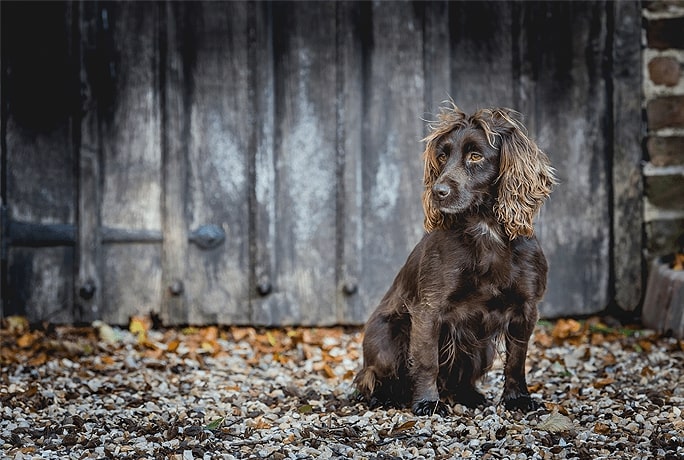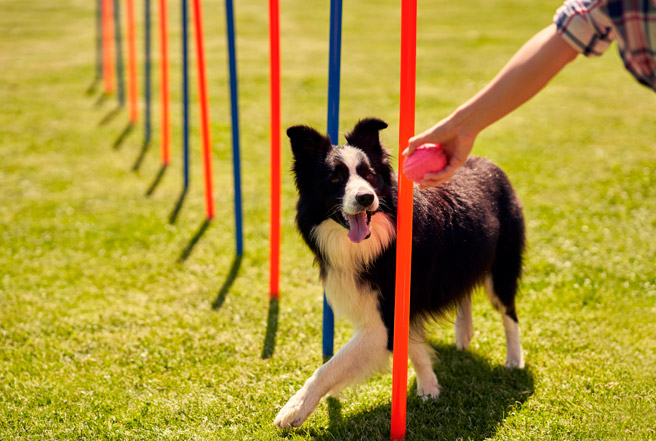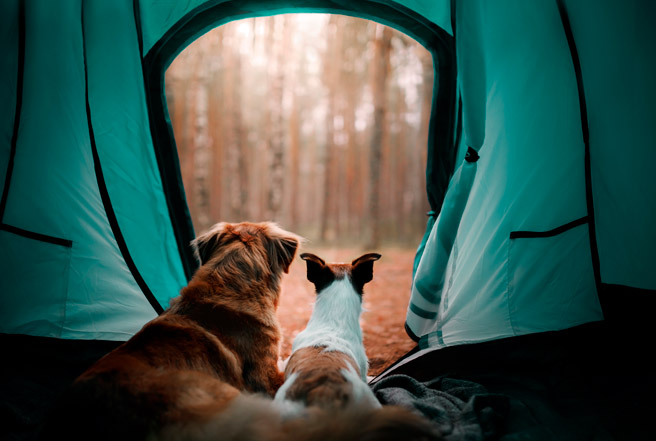Getting to the bottom of doggy diarrhoea
One of the most common minor ailments that dog owners come across is mild diarrhoea or poo that is perhaps softer than usual and appearing more frequently than usual. Sometimes, this is accompanied with other symptoms such as your dog being more quiet than usual or vomiting, other times, your dog seems absolutely fine in themselves, except for the difference in their stools!
Why do dogs get diarrhoea?
Diarrhoea indicates something is slightly (and occasionally, seriously) amiss with your dog’s digestive system. Sometimes that is the result of an infection from the environment, their food or other dogs (bacteria, viruses, worms and other parasites can all cause digestive upset). Other times, diarrhoea is simply a result of “something they ate”! Dogs evolved as scavengers. This means that they have an unfortunate tendency to eat a wide range of things that they are both supposed to eat and certainly not supposed to eat. For many dogs, this causes no problem at all, but for others it can cause significant digestive upset. Sometimes dogs even eat things that can’t be digested, and these can cause blockages in the gut – one of my own spaniels has a liking for socks for example! This constitutes a veterinary emergency, so if you suspect this might be the case, contact your vet immediately.
Minimise the risk
To minimise the risk of more minor digestive upsets, try to keep changes of food to a minimum. If you are introducing a new food, gradually introduce it over at least a week to allow the microbes that live in the gut to adapt. Indeed, it is quite normal when transitioning to a new food, and especially if the ingredients are significantly different, for stools to be looser than normal and flatulence to occur. These are signs that the organisms that live in the gut are adapting to new food sources. It is also good to keep a careful eye on things that might make your dog ill, especially if your dog has a habit of “counter surfing” or acquiring things they shouldn’t have! Ideally, keep things that your dog might eat and make themselves ill, out of reach (this includes things like chocolate, human medication……and socks!) It’s worthwhile teaching your dog a good “leave it” command too – this can stop them in their tracks and save episodes of digestive upset!
What to do when diarrhoea strikes?
What if your dog does present with diarrhoea however? What should you consider and what action should you take?
If the diarrhoea is sudden, being produced in large amounts, is blood tinged and/or your dog is showing other signs of being unwell (vomiting, lethargy, not eating /drinking, sudden weight loss, signs of pain such as stretching out or even groaning), seek advice from your veterinary surgeon immediately. Equally, if you have a very young puppy, an already ill/recovering dog or an elderly dog, early veterinary intervention is hugely important.
If your dog is regularly having periods of “normal poos” followed by periods of diarrhoea or soft poos, again consider seeking veterinary advice, in case of an intestinal infection that keeps recurring and needs treatment.
If your dog seems otherwise well, ensure that your dog has enough water (remember that more water will be lost because of the diarrhoea) and consider splitting their food into several smaller meals to help their digestive system recover. Perhaps also reduce your dog’s exercise to help them recover and to reduce the possible spread of any bugs to other dogs in your neighbourhood!
Monitor your dog carefully – if the diarrhoea persists and doesn’t seem to resolve within a day or so, again speak to your vet
Try not to make any changes to their food routine without veterinary advice – this can help their digestive system recover and also prevents the digestive system having to adapt to a new food when it is already a little delicate.
While some cases of diarrhoea can be serious and need urgent veterinary attention, many cases are self-limiting. Know your dog and monitor them carefully and hopefully digestive upsets and diarrhoea can be kept to a minimum! If you are concerned at all however, speak to your vet.



